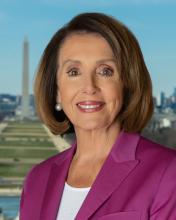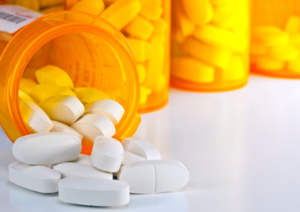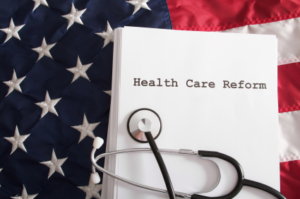Delay Medicaid DSH Cut, Pelosi Says
Medicaid DSH cuts should be delayed, House Speaker Nancy Pelosi (D-CA) told a gathering of hospital officials.
 According to Speaker Pelosi,
According to Speaker Pelosi,
DSH cuts threaten to erode the health of community hospitals, safety-net hospitals and rural hospitals, [affecting] the health of not only the families that rely on Medicaid, but any person who relies on these hospitals for care.
SNAP members all receive Medicaid DSH payments and would be harmed if the scheduled cut takes effect on October 1.
Learn more about Speaker Pelosi’s remarks in the Becker’s Hospital Review article “House speaker urges Congress to ease Medicaid payment cuts to hospitals serving low-income patients.”
 As described in the Centers for Medicare & Medicaid Services’ “final call letter’ for 2020,
As described in the Centers for Medicare & Medicaid Services’ “final call letter’ for 2020, The two are working together to develop new ICD-10 codes that would take into consideration social determinants of health such as housing and food security, access to transportation, and ability to pay for medicine.
The two are working together to develop new ICD-10 codes that would take into consideration social determinants of health such as housing and food security, access to transportation, and ability to pay for medicine. Introduced with bipartisan support, the legislation would extend for two years the current “Conrad 30” program that allocates 30 slots to each state so foreign-born doctors can work in medically underserved areas under J-1 visas. The program, which already exists but will soon expire, permits such physicians to remain in the U.S. for three years after their training ends to work in underserved areas. The legislation also would establish criteria under which more than 30 such physicians can be employed in a given state.
Introduced with bipartisan support, the legislation would extend for two years the current “Conrad 30” program that allocates 30 slots to each state so foreign-born doctors can work in medically underserved areas under J-1 visas. The program, which already exists but will soon expire, permits such physicians to remain in the U.S. for three years after their training ends to work in underserved areas. The legislation also would establish criteria under which more than 30 such physicians can be employed in a given state. The web site, mandated by Congress after the U.S. Department of Health and Services’ Inspector General found that some providers are being overcharged, will enable 340B-eligible providers to identify the maximum price they can be charged for covered drugs. This, HRSA believes, will help providers avoid being overcharged in the future.
The web site, mandated by Congress after the U.S. Department of Health and Services’ Inspector General found that some providers are being overcharged, will enable 340B-eligible providers to identify the maximum price they can be charged for covered drugs. This, HRSA believes, will help providers avoid being overcharged in the future. According to the Urban Institute report, repealing the entire Affordable Care Act would add almost 20 million Americans to the ranks of the uninsured. Medicaid and CHIP enrollment would fall by 15.4 million people and millions of others would lose the tax credits they used to purchase insurance. Some would purchase insurance with limited benefits and individual plan premiums would rise while others would go uninsured.
According to the Urban Institute report, repealing the entire Affordable Care Act would add almost 20 million Americans to the ranks of the uninsured. Medicaid and CHIP enrollment would fall by 15.4 million people and millions of others would lose the tax credits they used to purchase insurance. Some would purchase insurance with limited benefits and individual plan premiums would rise while others would go uninsured. Last week the Medicaid and CHIP Payment and Access Commission released its annual report to Congress, with most of the report focusing on its analysis and recommendations for policy updates involving Medicaid disproportionate share hospital payments (Medicaid DSH) and Medicaid upper payment limit payments (UPL payments).
Last week the Medicaid and CHIP Payment and Access Commission released its annual report to Congress, with most of the report focusing on its analysis and recommendations for policy updates involving Medicaid disproportionate share hospital payments (Medicaid DSH) and Medicaid upper payment limit payments (UPL payments). MACPAC commissioners discussed several statutory changes that would seek to minimize the impact of the court ruling:
MACPAC commissioners discussed several statutory changes that would seek to minimize the impact of the court ruling: